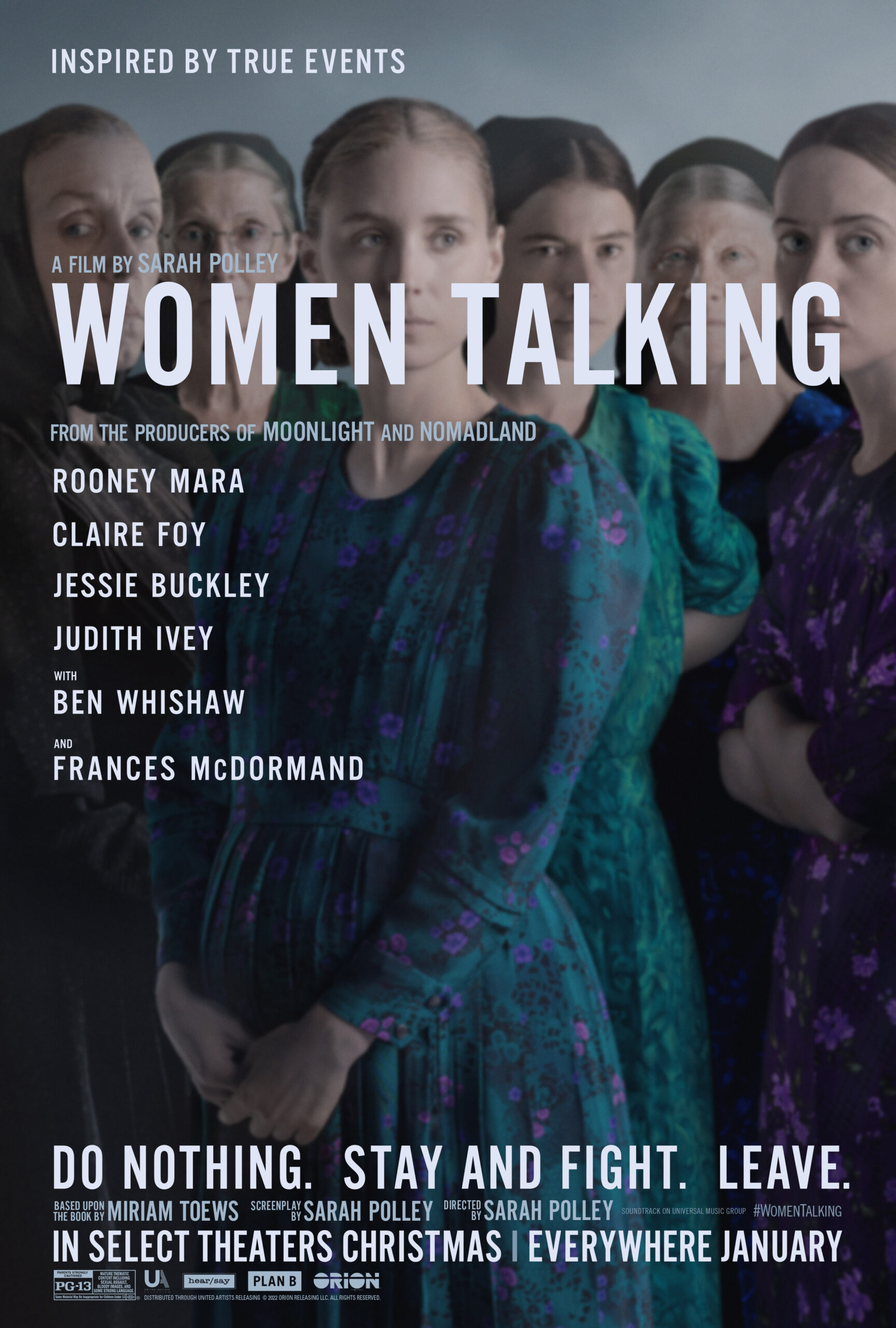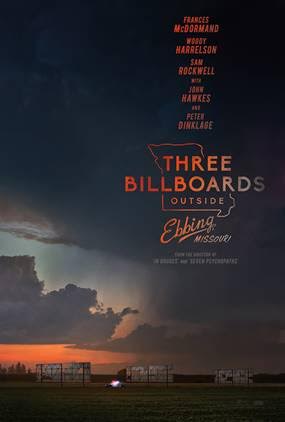Starring: Claire Foy, Jessie Buckley and Rooney Mara
Directed by: Sarah Polley
Rated: PG-13
Running Time: 104 minutes
United Artists Releasing
Our Score: 4.5 out of 5 stars
George Carlin once said, “There’s no such thing as rights. They’re imaginary. We made ’em up. Like the boogie man.” I open my review with that quote for two reasons. First being that 2022 was the year that women experienced the loss of their body autonomy rights. Second being that the women in “Women Talking,” never had rights because of the boogie man.
“Women Talking” opens with a group of women in an unnamed religious colony discussing the revelation over the prior days/weeks that ghosts or Satan aren’t behind the drugging and raping they’re experiencing. Nope. It’s the men who live among them. Their friends, their neighbors, their fathers, their spouses, etc. For years, those men have been the ones who have been drugging the women so that they can sneak in at night and rape them only to tell them the next day it’s the boogie man. With this revelation, something has to happen, right? The men are caught and arrested, but the rapists post bail and are on their way back home as if nothing happened. The women at this discussion represent different houses of thought on what to do before the rapists return. Some women believe they should do nothing and continue to be the subservient class in this community. Others believe it’s time to stay and get their fists and noses bloodied. A good portion believe that it’s simply time to leave.
Unfortunately the above scenario is not the work of Hollywood, it is based on a book written by Miriam Toews, a former Mennonite girl who fled her Canadian Mennonite community when she turned 18. “Women Talking” isn’t looking to bash one of the more peculiar sects of Christianity though. Outside of showing the horrific reality that women are still second-class citizens in portions of the world, “Women Talking” also examines a very key question in trauma, “What now?” The three options above spur fascinating on-screen discussions that cross the proverbial universe of these women. The revelations are handled differently, with some women still drinking the flavor aid that the best option is to ignore the crimes because…God’s “wishes?” Other women want to leave, but then wonder if that means taking their children. Some of their children are boys, does that mean their boys will grow up to become rapist monsters? Do they leave the boys? Can any man be trusted? If the women stay and fight, how will the community as a whole react? What will stop the men from banding together and retaliating if it’s a war between the sexes?
A film like “Women Talking,” which thankfully spares the audience the visuals of the rapes, relies heavily on its actors and script, and both are a cannon shot across the bow. Not only are the perpetrators called out in the story, but the real world is called into question by these discussions. I could break down the stellar performances and moments, but “Women Talking” is truly a film that demands attention and silences you with the power of words. At times the film is an emotional wrecking ball, making the words of these women more powerful than any scene featuring the crimes themselves. The casting is truly spotless because even the lone man (played by Ben Wishaw) in the community, who is helping the women by keeping record of their discussions and chiming in when called upon, adds emotional layers to the women debating something they’ve probably never debated or even discussed before.
In a lot of ways, “Women Talking” plants its feet in the past and in the present day. In some regards you can view the film as a historic look at how women finally release themselves from the shackles of their oppressors to give rise to a movement and help create the birth of a new society, one in which both sexes are equal. You can also see the modern commentary hidden in the tearful debates between our characters. Either that or the old idiom is true, history is doomed to repeat itself. Foy, Buckley and Mara lead the way for this ensemble cast tasked with not only conveying a powerful message, but doing it in a riveting way where the viewer will either find themselves teary eyed, aghast or silent. For some viewers, those who have already seen the movie, “Women Talking” bookended a rough 2022 for women in America, and for some viewers, this film is your rallying cry in 2023.



